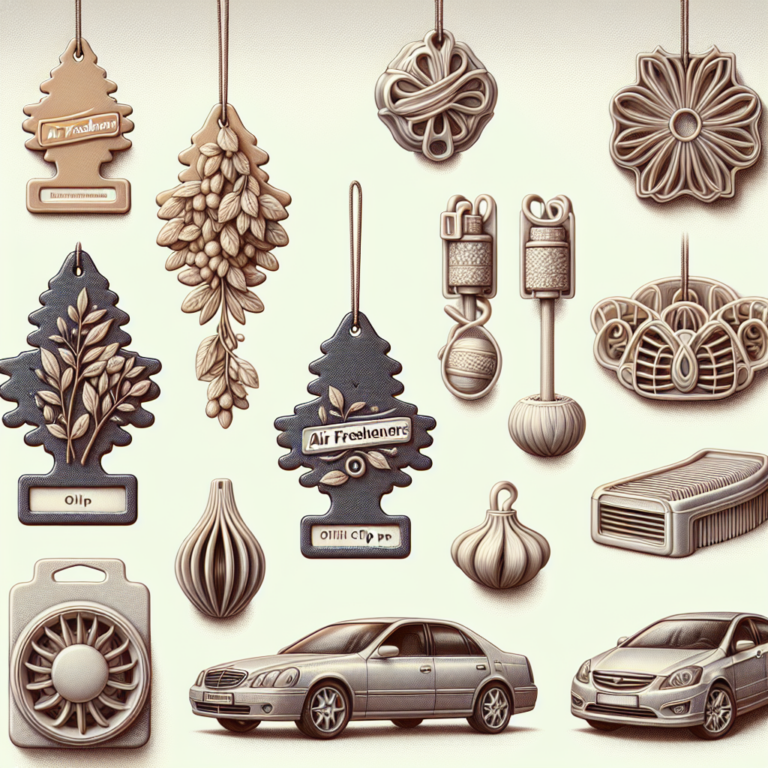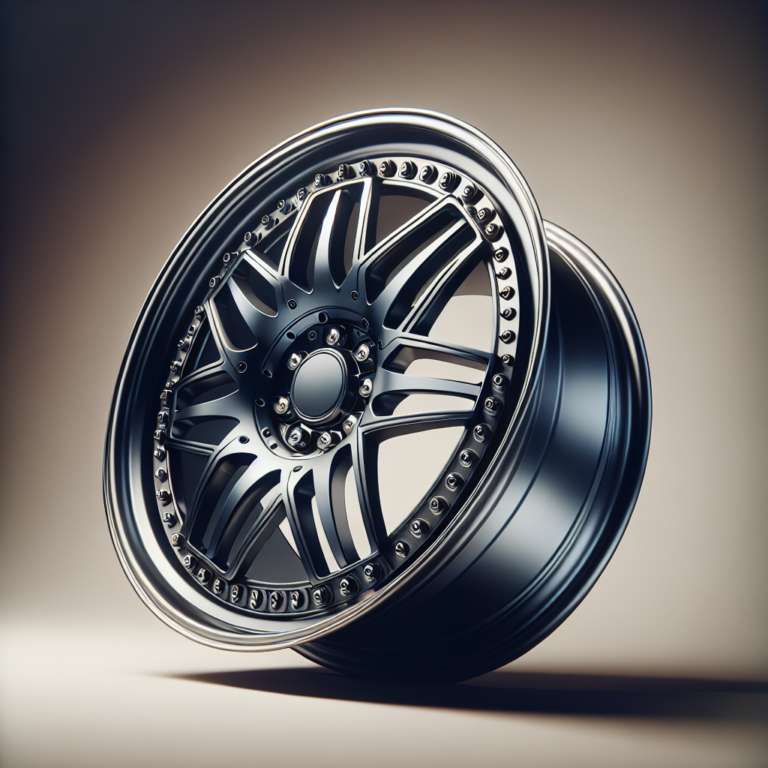The Importance of Car Tires
Car tires play a crucial role in the overall performance and safety of your vehicle. Understanding their significance and how they impact both style and performance is essential for car owners looking to upgrade their tires.
Understanding the Role of Car Tires
Car tires are the only point of contact between your vehicle and the road. They provide traction, stability, and control, allowing you to navigate various road conditions with confidence. Tires are responsible for transmitting acceleration, braking, and steering forces, making them a vital component in your car’s overall performance.
In addition to their functional role, car tires also contribute to the style and appearance of your vehicle. The design, tread pattern, and sidewall appearance can enhance the overall aesthetics, giving your car a more aggressive, sporty, or elegant look.
How Car Tires Impact Style and Performance
The type of tire you choose can have a significant impact on both the style and performance of your car. Different tire types are designed to excel in specific conditions and driving styles. Let’s explore how car tires affect style and performance:
-
All-Season Tires: These tires are popular for their versatility, offering good performance in a variety of weather conditions. They provide a balance between grip, comfort, and durability, making them suitable for everyday driving.
-
Summer Tires: Designed for warm weather conditions, summer tires deliver excellent dry and wet traction. They offer enhanced cornering and braking capabilities, providing a sportier driving experience.
-
Winter Tires: Winter tires are specifically engineered to perform in cold weather, snowy, and icy conditions. They feature specialized tread patterns and rubber compounds that provide optimal traction and grip on slippery surfaces.
-
Performance Tires: If you’re looking for enhanced handling and responsiveness, performance tires are a great choice. These tires are designed for sporty driving, offering improved grip, cornering stability, and shorter braking distances.
-
Off-Road Tires: Designed for off-road adventures, off-road tires feature aggressive tread patterns and reinforced construction to withstand rugged terrains. They provide superior traction and durability, allowing you to explore challenging off-road trails with confidence.
By understanding the role of car tires and how they impact both style and performance, you can make an informed decision when choosing the right tires for your vehicle. Consider factors such as weather conditions, driving style, and the specific needs of your car to ensure the best possible performance and appearance.
Types of Car Tires
When it comes to selecting the right tires for your car, it’s important to understand the different types available and their specific purposes. Here, we will explore five common types of car tires: all-season tires, summer tires, winter tires, performance tires, and off-road tires.
All-Season Tires
All-season tires are designed to provide reliable performance throughout the year, making them a popular choice for many car owners. These tires are built to handle a variety of road conditions, including dry, wet, and light snowy surfaces. They offer a good balance between traction, handling, and longevity, making them suitable for everyday driving.
All-season tires typically have a tread pattern that is optimized for a smooth and quiet ride. While they perform reasonably well in different weather conditions, it’s important to note that they may not provide the same level of grip and performance as specialized tires in extreme weather conditions. For more information on choosing the right all-season tires, consider our article on car tires.
Summer Tires
Summer tires, also known as performance tires, are designed to deliver superior handling and traction in dry and wet conditions. These tires are built with a specialized rubber compound that provides excellent grip on warm roads. The tread patterns of summer tires are designed to maximize contact with the road, enhancing responsiveness and cornering abilities.
Due to their high-performance nature, summer tires are not recommended for use in cold or snowy conditions. They may harden and lose grip, compromising safety. If you live in an area with mild winters, summer tires can be a great choice to enhance your car’s performance during the warmer months.
Winter Tires
Winter tires, also referred to as snow tires, are specifically designed to perform in cold and snowy conditions. These tires feature a unique tread pattern with deeper grooves and biting edges, which provide superior traction on icy and snowy roads. Winter tires are made from a rubber compound that stays flexible even in freezing temperatures, ensuring optimal grip.
The specialized tread design of winter tires allows them to expel snow and slush, maintaining contact with the road surface. This improves both acceleration and braking performance, making winter tires essential for safe driving in cold climates. For detailed information on the benefits of winter tires, head to our article on car tires.
Performance Tires
Performance tires are designed to deliver maximum grip, responsiveness, and handling capabilities for sporty and high-performance vehicles. These tires are built with a focus on speed and agility, offering enhanced traction and cornering abilities. Performance tires feature a specialized tread pattern and a softer rubber compound, optimizing performance on dry roads.
It’s important to note that performance tires may have shorter tread life due to their softer rubber composition. Additionally, they may not perform as well in wet or winter conditions compared to all-season or winter tires. If you own a sports car or enjoy spirited driving, performance tires can provide the level of performance you desire.
Off-Road Tires
Off-road tires, also known as all-terrain tires, are designed to handle rough and challenging terrains. These tires feature a robust construction with aggressive tread patterns that provide excellent traction on gravel, mud, sand, and rocky surfaces. Off-road tires are commonly used on SUVs and trucks that venture off the beaten path.
The deep grooves and lugs on off-road tires help to grip uneven surfaces, providing enhanced traction and stability. It’s important to note that off-road tires may sacrifice some on-road comfort and noise levels due to their aggressive tread pattern. If you enjoy off-roading or require tires that can tackle rugged terrains, off-road tires are the ideal choice.
Understanding the different types of car tires enables you to choose the right set based on your specific needs and driving conditions. Whether you opt for all-season, summer, winter, performance, or off-road tires, it’s essential to consider factors such as climate, road conditions, and your vehicle’s requirements. Selecting the appropriate tires can greatly enhance your car’s style and performance.
Choosing the Right Tires for Your Car
When it comes to selecting the right tires for your car, there are several important factors to consider. The type of tires you choose can greatly impact the performance, safety, and overall driving experience of your vehicle. Here are some key considerations to keep in mind when selecting car tires.
Considerations for Tire Selection
-
Driving Conditions: Assess the typical driving conditions you encounter. Determine whether you primarily drive in dry, wet, or snowy conditions. This will help you determine the type of tire that best suits your needs. For more information on tire types, refer to our article on car tire types.
-
Tire Size: Make sure to select tires that are compatible with your vehicle’s size specifications. Refer to your car’s owner’s manual or consult a professional to ensure you choose the correct tire size.
-
Tread Pattern: Consider the tread pattern that best suits your driving needs. Tread patterns vary depending on the tire type and are designed to provide optimal grip and handling characteristics. For example, all-season tires have a balanced tread pattern suitable for various weather conditions, while performance tires have a more aggressive pattern for enhanced cornering capabilities.
-
Load Rating: Determine the load rating required for your vehicle. The load rating indicates the maximum weight a tire can safely support. It’s crucial to select tires that can handle the weight of your vehicle and any additional cargo.
-
Speed Rating: Consider the speed rating needed for your driving habits. The speed rating indicates the maximum speed at which a tire can safely operate. Ensure that the tires you choose are rated for the speeds you typically drive.
Factors to Keep in Mind
-
Budget: Set a budget for purchasing new tires. Prices can vary depending on the brand, type, and quality of the tires. It’s important to find a balance between cost and performance to ensure you get the best value for your money.
-
Longevity: Consider the expected lifespan of the tires. Some tires may have a longer tread life, which can help save money in the long run. Look for tires with a good reputation for durability and longevity.
-
Fuel Efficiency: Look for tires that offer good fuel efficiency. Tires with lower rolling resistance can help improve fuel economy, saving you money at the pump. Check for the tire’s fuel efficiency rating, often indicated by a fuel pump symbol on the sidewall.
-
Noise Level: Consider the noise level produced by the tires. Some tires are designed to provide a quieter and more comfortable ride, which can enhance your overall driving experience.
By considering these factors, you can make an informed decision when selecting the right tires for your car. Remember to consult with a tire professional or refer to your car’s manufacturer recommendations for additional guidance. Proper tire selection is essential for maximizing your car’s performance, safety, and overall driving pleasure.
Tire Maintenance and Care
To ensure optimal performance and longevity of your car tires, regular maintenance and care are essential. By following proper tire maintenance practices, you can maximize safety, improve fuel efficiency, and prolong the lifespan of your tires. Here are the key aspects of tire maintenance and care:
Regular Tire Inspections
Performing regular inspections of your car tires is crucial for identifying any potential issues or signs of wear. Inspect the tires visually to check for signs of damage, such as cuts, bulges, or sidewall cracks. Additionally, pay attention to the tire tread depth. Insufficient tread depth can affect traction and increase the risk of hydroplaning on wet roads. Use a tread depth gauge or the penny test to measure the remaining tread depth. If the tread depth is below the recommended level, it may be time to replace your tires.
Proper Tire Inflation
Maintaining the correct tire pressure is vital for both safety and performance. Underinflated or overinflated tires can lead to uneven wear, reduced traction, and decreased fuel efficiency. Refer to your vehicle’s owner’s manual or the tire placard on the driver’s side door jamb to find the recommended tire pressure for your car. Regularly check the tire pressure using a reliable tire pressure gauge and adjust it as needed. It’s best to check the tire pressure when the tires are cold, as heat generated during driving can affect the readings.
Tire Rotation and Alignment
Regular tire rotation and alignment are essential for promoting even tire wear and prolonging the lifespan of your tires. Tire rotation involves moving the tires from one position to another, ensuring that they wear evenly over time. This helps to maintain consistent handling and traction. Refer to your vehicle’s owner’s manual for the recommended tire rotation interval and pattern.
Wheel alignment, on the other hand, ensures that the wheels are properly aligned with each other and the road. Proper alignment prevents uneven tire wear and improves handling and stability. Signs that your vehicle may need an alignment include uneven tire wear, pulling to one side, or a vibrating steering wheel. It’s recommended to have your wheel alignment checked regularly, especially after hitting a pothole or curb.
By incorporating regular tire inspections, proper tire inflation, and tire rotation and alignment into your maintenance routine, you can keep your car tires in optimal condition. Remember, well-maintained tires not only contribute to your safety on the road but also enhance the overall performance and handling of your vehicle.
Upgrading Your Car’s Tires
If you’re looking to enhance both the style and performance of your vehicle, upgrading your car’s tires can make a significant difference. Upgrading to the right tires can improve traction, handling, and overall driving experience. In this section, we will explore when to consider upgrading, the benefits of upgrading, and how to find the right tires for your needs.
When to Upgrade
There are several situations when upgrading your car’s tires is recommended:
-
Worn Tread: As tires wear down over time, the tread depth decreases, affecting their ability to grip the road. If your tires have worn down to the point where the tread depth is below the recommended level, it’s time to consider upgrading.
-
Seasonal Changes: If you live in an area with extreme weather conditions, such as heavy snow or intense heat, switching to specialized tires for each season can greatly improve your car’s performance and safety.
-
Performance Enhancement: If you’re looking to enhance the handling, cornering, and overall performance of your vehicle, upgrading to performance tires specifically designed for improved grip and responsiveness is a great option.
-
Style Upgrade: Upgrading your tires can also be a way to enhance the appearance of your car. Choosing tires with a sleek design or unique tread pattern can give your vehicle a more customized and stylish look.
Benefits of Upgrading
Upgrading your car’s tires can offer several benefits, including:
-
Improved Traction: Upgraded tires with better tread patterns and advanced rubber compounds can provide improved traction on various road surfaces, enhancing your car’s grip and stability.
-
Enhanced Handling: Upgraded tires designed for better handling characteristics can offer improved responsiveness and precision, allowing you to have better control over your vehicle during maneuvers.
-
Increased Safety: Upgraded tires can enhance your car’s safety by reducing the risk of hydroplaning, improving braking performance, and providing better stability in different weather conditions.
-
Better Fuel Efficiency: Some upgraded tires are designed to reduce rolling resistance, which can result in improved fuel efficiency and lower overall operating costs.
Finding the Right Tires for Your Needs
When looking for the right tires to upgrade your car, it’s important to consider your specific needs and preferences. Here are some factors to keep in mind:
-
Driving Conditions: Consider the typical weather and road conditions you encounter. Choose tires that are suitable for your driving environment, such as all-season tires, winter tires, or performance tires.
-
Tire Size: Ensure that the upgraded tires are compatible with your vehicle’s specifications, including the correct tire size, load capacity, and speed rating. Refer to your car’s owner’s manual or consult a professional for guidance.
-
Tire Features: Look for tire features that align with your priorities, such as tread life, wet and dry traction, noise reduction, or fuel efficiency. Prioritize the features that matter most to you.
-
Budget: Consider your budget when selecting upgraded tires. While higher-end tires often offer superior performance and longevity, there are also budget-friendly options available that can provide satisfactory results.
Remember, proper tire maintenance and care are essential to maximize the lifespan and performance of your upgraded tires. Regularly check tire pressure, rotate and align your tires as recommended, and monitor tread wear to ensure optimal performance.
By upgrading your car’s tires, you can unleash both style and performance, enhancing your driving experience and safety on the road. Take into account the factors discussed above, and consult with professionals if needed, to find the right tires that meet your specific requirements.







